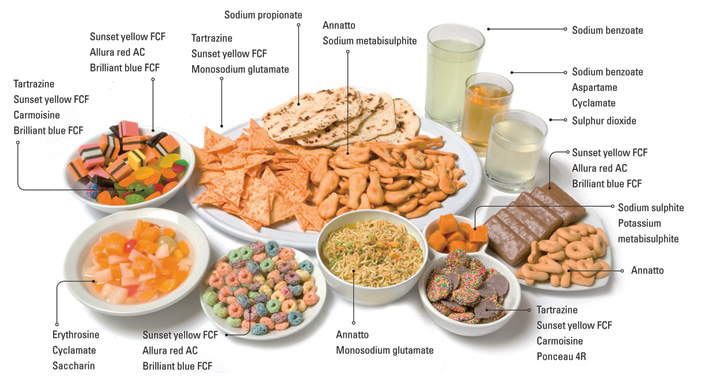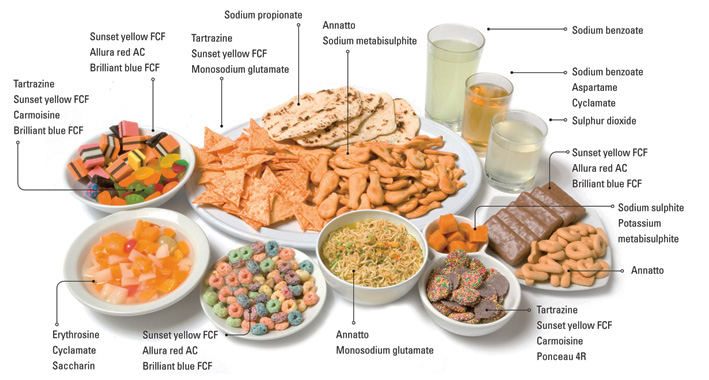The beauty of a night sky or painting may lower risk for inflammation, found a studypublished in the journal Emotion. Researchers conducted two experiments designed to measure the affect positive emotions, such as amusement, awe, compassion, contentment, joy, love, and pride, have on the cytokine Interleukin-6 (IL-6), a marker for inflammation. More than 200 young adults participated in the experiments, mostly self-reporting …
Additives in Processed Foods May Alter Gut Bacteria
Study in mice suggests changes might raise risk of bowel diseases and metabolic syndrome WEDNESDAY, Feb. 25, 2015 (HealthDay News) — A common ingredient in many processed foods might increase the risk of inflammatory bowel disease (IBD) and metabolic syndrome, a new study in mice suggests. Emulsifiers are used to improve food texture and to extend shelf life. In experiments …
6 Common Food Additives Used in the U.S. That Are Banned in Other Countries
The U.S. Food and Drug Administration (FDA) regulates the use of food additives like preservatives, colors, sweeteners, fat replacers, emulsifiers and other ingredients added to food to maintain or improve safety, freshness, nutritional value, taste, texture and appearance. Food additives can be direct (those added for a specific purpose) or indirect (those added in trace amounts due to packaging, storage or handling) and are determined …
Could Common Food Additives Be Causing Serious Health Problems?
Emulsifiers approved for use by the U.S. Food and Drug Administration are commonly added to processed foods to improve texture, increase shelf life and prevent oils and fats from separating. You’ll see them listed on ingredient labels as polysorbate 80, lecithin, carrageenan, polyglycerols, xanthan and other gums in everything from bread and cookies to salad dressings, ice cream, non-dairy milks and more. …
The Failing Animal Research Paradigm for Human Diseases
“The history of cancer research has been a history of curing cancer in the mouse. We have cured mice of cancer for decades—and it simply didn’t work in humans.” This statement was made by Richard Klausner, M.D., former director of the National Cancer Institute, to the Los Angeles Times(Cimons 1998). It is a statement that applies equally to many other common …




